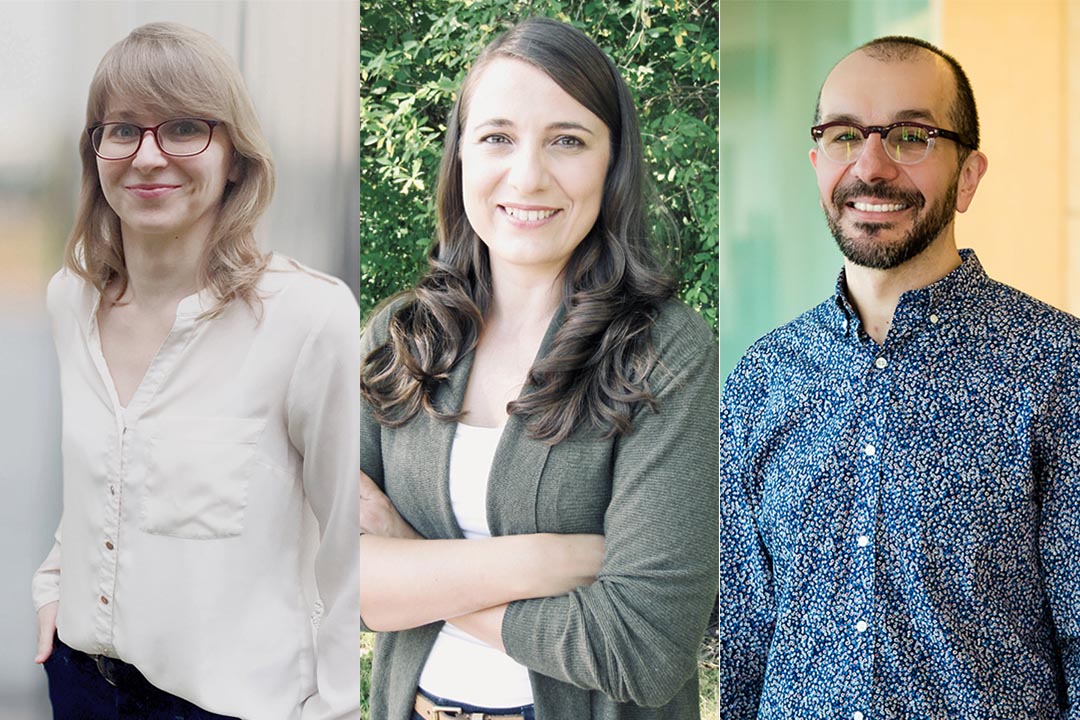
USask researchers awarded over $440,000 in SSHRC funding to kickstart research with social impact
Eight University of Saskatchewan (USask) researchers have been awarded nearly $445,000 in funding to support multiple projects that bridge history and social innovation.
The researchers will address multiple facets of the social sciences and humanities — including examining the impacts of state intervention in 20th century Métis road allowance communities, assessing how transnational networks of 2SLGBTQ+ individuals in 1950s Europe continue to inspire social activism, and evaluating strategies to support the civilian reintegration of former child soldiers in Uganda.
The funding—Insight Development Grants awarded by Canada’s Social Sciences and Humanities Research Council (SSHRC)—is intended to support research in its initial stages for up to two years.
The following projects were awarded funding:
Livelihood responses to rural road development – the case of Little Red River Cree Nation - College of Agriculture and Bioresources - $74,943
Agricultural researcher Dr. Sabine Liebenehm (PhD) will assess the rural road and bridge development plans of Little Red River Cree Nation (LRRCN) in Alberta through an examination of the perceptions of the Indigenous peoples in the region. The study will be the first in Canada to estimate First Nation members’ preferences for livelihood changes in the context of rural road development. Results will inform the Chief and Council of LRRCN and other Indigenous communities about sustainable infrastructure development.
Clearing the Road Allowances: Métis Responses to State Intervention and Removal in the 20th Century - College of Arts and Science - $71,083
History researcher Dr. Cheryl Troupe (PhD) will examine the experience of Métis peoples in 20th century Saskatchewan within road allowance communities. The research will compare communities locally and regionally to paint a picture of Métis mobility, including movement to and removal from the road allowance communities. The work challenges how we understand and define road allowance communities, recasting them not as marginal or liminal places but as spaces where families, language and cultural practices remained resilient.
ICC Reparations, Child Soldier Reintegration, and Post-Conflict Social Reconstruction: a Ugandan Case Study in Theory and Policy – College of Arts and Science - $69,633
Political studies researcher Dr. Kirsten Fisher (PhD) will consider the implications of the International Criminal Court’s (ICC) reparations that will likely be awarded to former child soldiers following their re-entrance into civilian life. Building on Fisher’s previous research in Northern Uganda conducted since 2007, the work will examine the effects and effectiveness of the ICC’s reparations program in contributing to post-conflict reconciliation, with findings having implications for reparations policies in Canada and elsewhere.
Italy and the “Homophile International”: Transnational Activism and the Redefinition of (Homo)sexual Citizenship - College of Arts and Science - $67,502
History researcher Dr. Alessio Ponzio (PhD) will apply expertise in European history, gender and sexuality to analyze how transnational activism among homophile groups promoted socio-cultural changes and created opportunities for sexual emancipation. A case study of queer networks in 1950s Europe will highlight the integral connections between sexuality and experiences of politics and citizenship, and how the existence of these social networks can inspire activism across nations.
Bioarchaeology of the 99 Percent: Eastern Eurasia’s First Steppe Empire - College of Arts and Science - $64,300
Archaeology and anthropology researcher Dr. Angela Lieverse (PhD) will conduct an analysis of commoner life ways from the Xiongnu Empire, which spanned regions of Mongolia, China, and Siberia (Russia) between 210 BCE and 90 CE. Using bioarchaeological techniques and mortuary data from a non-elite citizen cemetery, Ivolga, located in southern Siberia, the research will address a crucial gap in Xiongnu archaeology by examining the famous empire through a commoner lens. Lieverse and colleagues will reconstruct the lived experiences, life ways, and identities of the empire’s working-class citizens.
Mapping Disabilities in French Cinema - College of Arts and Science - $38,678
USask assistant professor in French, Dr. Romain Chareyron (PhD), will be the first to analyze how disability is represented in French cinema. The research will establish and advance the dialogue between various academic disciplines, such as disability studies, cultural studies, and film studies, and will offer greater visibility to those with disabilities within the realm of French studies. Chareyron will work conjointly with the USask Digital Research Centre to develop an open-access digital repository where films will be analyzed and catalogued.
Resurfacing “History” at the Tunnels of Moose Jaw - College of Arts and Science - $20,924
USask historian Dr. Ashleigh Androsoff (PhD) will examine the presentation of Chinese-Canadian history at the well-known Saskatchewan tourist attraction, the Tunnels of Moose Jaw. Using evidence from archival documents, interviews, and surveys, the research will shed new light on the history of Chinese-Canadians who settled in Moose Jaw in the early 20th century. The project will critique the attraction’s presentation of history, examine its lasting impact on guests, and will explain what distinguishes this tourist attraction from other types of public history sites.
Read about other projects SSHRC is funding: https://www.sshrc-crsh.gc.ca/results-resultats/recipients-recipiendaires/index-eng.aspx

